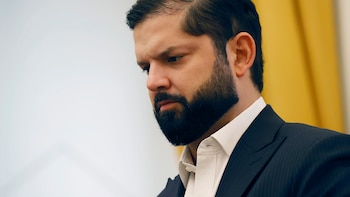
After the reading of the judgment of the International Court of Justice in The Hague, there are many pronouncements on the subject, because despite the fact that, from the national delegation, the decision was taken as a success, different sectors of the country have spoken out against the fact. Regarding the subject, former President of the Republic Álvaro Uribe Vélez spoke, who explained this situation from his experience and strongly criticized several points in question.
There were 14 points addressed by the former president, in which he questioned some limitations imposed on Colombia in relation to its military navigability and the execution of actions regarding the conservation of the environment. He also described the 2012 judgment as illegal, since it should be noted that at that time Colombia had to ceding much of its nautical miles to Nicaragua, the Central American country with which the historic dispute is taking place.
Uribe, stressed that there was never talk of the country's non-compliance with regard to the ruling issued in 2012, since this could have serious consequences for the country, although this time they sought to verify compliance data, but not, territorial delimitation. According to the Antioquian politician, Colombia has never carried out military operations in the zone of interference, however, the offensive military presence was banned. In turn, it brought up the context of the root communities, which, despite having been recognized their fishing rights, their historical rights were not accepted, the leader cited the Democratic Center.

At the same time, he questioned the so-called Exclusive Economic Zone of Nicaragua, since he considers that it limits the size of the country and it is not conceivable that such an effect will be allowed. In relation to the position of the environmental issue, Uribe stressed the necessary care that must be taken with the Sea Flower reserve, since it is the axis of flora and fauna of this island region, since in this case, Colombia is unable to carry out preservation exercises in certain spaces.
Regarding the 2012 judgment, the former senator points out several cases regarding territorial extension, labeling that decision illegal, on the subject he explained: “reasons to affirm that the 2012 judgment is illegal: a) It ignored the principle of equity applied in the Esguerra-Bárcenas Treaty, in which Colombia formalized the (b) in the same Treaty, the definition of the 82nd Meridian as the boundary line of San Andrés to the West, should have been accepted as an integral limit, that is, air, sea and submarine platform, there was no convention of the sea or trend of customary law, that could be violated”.
Meanwhile, Álvaro Uribe continued his assault against the 2012 ruling, arguing that it would take away Colombia's belonging to the San Andrés, Providencia and Santa Catalina Archipelago, pointing out that there is a historical possession over this territory that was unknown, even highlighting the decisions issued by the late Simon Bolivar in 1810, establishing the Utti Possidetis Juris, on the right of deprivation.
Similarly, he mentioned his position on Colombia's presence in the so-called Bogotá Pact, a mechanism that seeks the countries of the region to urge pleasant solutions to conflicts and prevent warfare between conflicts, it should be noted that Colombia renounced it in 2013 following the Hague ruling on this theme, the resignation was presented by then-president Juan Manuel Santos
Uribe said: “Colombia promptly withdrew from the International Court but not from the Bogotá Pact. I didn't do it in 2002 because it was too late, it would have been required a year before any demand from Nicaragua. And I accepted the position of previous governments and the Advisory Commission not to affect the Bogotá Pact. The late retirement was decided in 2013 and I consider it right.”
KEEP READING:
Últimas Noticias
Debanhi Escobar: they secured the motel where she was found lifeless in a cistern
Members of the Specialized Prosecutor's Office in Nuevo León secured the Nueva Castilla Motel as part of the investigations into the case

The oldest person in the world died at the age of 119
Kane Tanaka lived in Japan. She was born six months earlier than George Orwell, the same year that the Wright brothers first flew, and Marie Curie became the first woman to win a Nobel Prize

Macabre find in CDMX: they left a body bagged and tied in a taxi
The body was left in the back seats of the car. It was covered with black bags and tied with industrial tape
The eagles of America will face Manchester City in a duel of legends. Here are the details
The top Mexican football champion will play a match with Pep Guardiola's squad in the Lone Star Cup

Why is it good to bring dogs out to know the world when they are puppies
A so-called protection against the spread of diseases threatens the integral development of dogs




